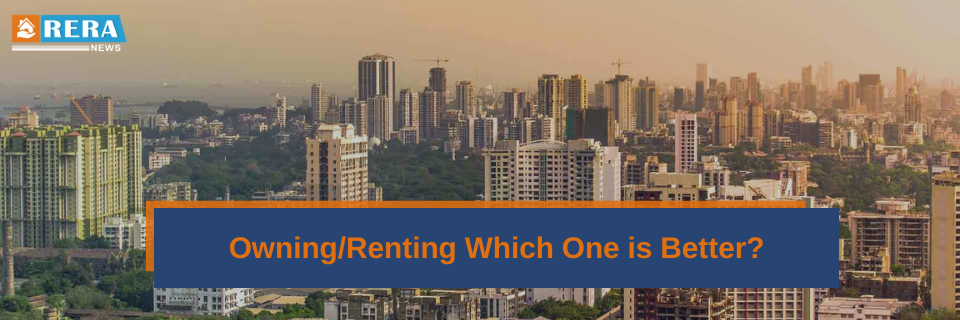
Instead of paying rent, why not pay your EMI and acquire an asset that you own?
This is the hottest argument we have with our parents, friends, or bank relationship managers. In reality this makes sense we don’t get anything in return from the rent that we pay to the landlord.
It is true that the high cost of real estate in India can be a major barrier to homeownership for many people.
According to Atul Goel, MD of Goel Ganga Group, there has been a significant increase in housing prices over the past 20 years, which has outpaced the growth in salaries. In 1997, approximately 55% of people aged between 25-30 years owned a house, but this figure has now dropped to around 34%, as per a report by the Institute for Fiscal Studies. The situation has worsened further with rents consuming almost 25% of the monthly income.
10 reasons why staying on rented house is not smart move
1. Purchasing a house can yield both financial and emotional advantages likewise getting stable and creating wealth for self. By owning a house, individuals have the opportunity to build wealth as property values typically appreciate over time.
2. Investing in a house and then selling it can be a way for homeowners to increase their wealth and potentially upgrade to their dream home. Renting, on the other hand, only involves paying a recurring monthly cost without any opportunity to build equity in the property.
3. It can be said that a rented house is not an asset in the same way that a purchased house is, purchasing a home is a smart move that can have significant financial benefits.
4. Atul Goel pointed out that owning a house can be advantageous for homeowners as they can utilise the higher net worth it provides to their advantage, such as accessing loans by using their property as collateral.
5. Owning a home can provide a potential source of income for the owner. One way is by renting out a portion of the property, which can generate regular income. Additionally, if the owner does not plan to reside in the property, they can explore commercial options such as offering homestay or vacation rental services.
6. Landlords of rental properties often have the flexibility to raise the rent over time or upon lease renewal, which can make renting a progressively costly choice for tenants. On the other hand, owning a house eliminates the pressure of dealing with such significant increases in payments.
7. Landlords who own rental properties have the authority to raise rent prices and can also serve eviction notices to their tenants, which can create significant challenges for tenants who must find new rental accommodations within a limited time frame
8. A current issue involves the difficulty faced by tenants who wish to renovate their living space, but are unable to do so due to restrictions outlined in their rental agreement. On the other hand, homeowners are able to renovate their living spaces with ease and customise them according to their preferences
9. Renting a house can be detrimental to financial stability due to the lack of potential tax benefits. As a tenant, you are not able to take advantage of deductions and credits that can positively impact your credit score and contribute to building wealth
10. Having a home provides a chance for generating passive income, which is not possible when renting a property.
Atul Goel stated that owning a house can offer a feeling of stability that motivates individuals to settle down and removes concerns about paying rent or the possibility of being evicted from a rented property. Additionally, homeownership grants the freedom to design and create a dream home, and can even generate passive income.
owning a property in India can also provide a sense of security and stability, especially for families with children. Owning a home can provide a stable living environment and a sense of permanence, which can be important for children's emotional and social development.
.
© 2023 Rera News. All rights reserved.